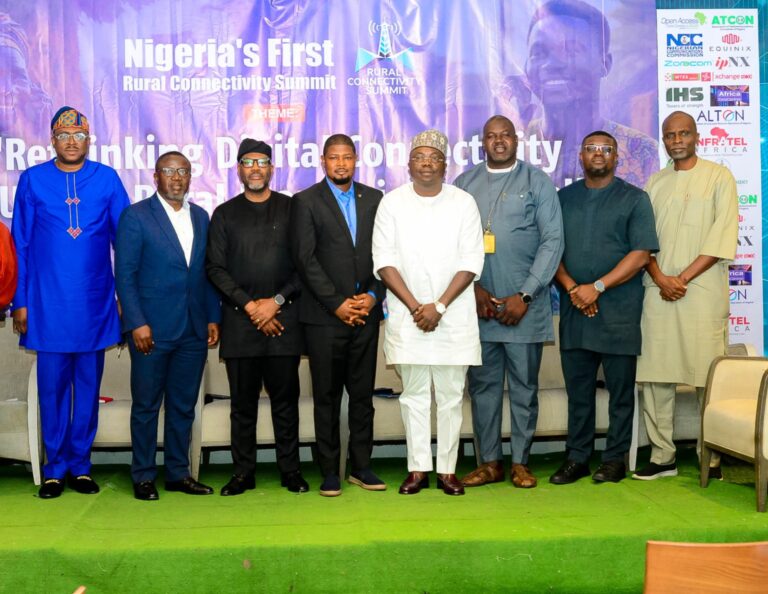Policymakers, IT experts, and industry leaders have called for urgent action to close the digital divide that continues to exclude rural Nigerians from the country’s economic potential.
At Nigeria’s First Rural Connectivity Summit held in Lagos, alarming data of over 80 million Nigerians still underserved with electricity, while over 20 million of the population still find themselves in unserved regions without any form of access to connectivity.
The summit, organised by Business Metrics Limited on Wednesday, rallied industry experts for a forward-looking dialogue to address barriers associated with digital connectivity in rural areas and recommend sustainable solutions while making actionable calls.
Convener of the summit, Omobayo Azeez, described the event as a national call to action rather than another policy talk shop. “Connectivity is more than cables and towers. It is access to education, to healthcare, to markets, to governance, and to opportunity,” he said.
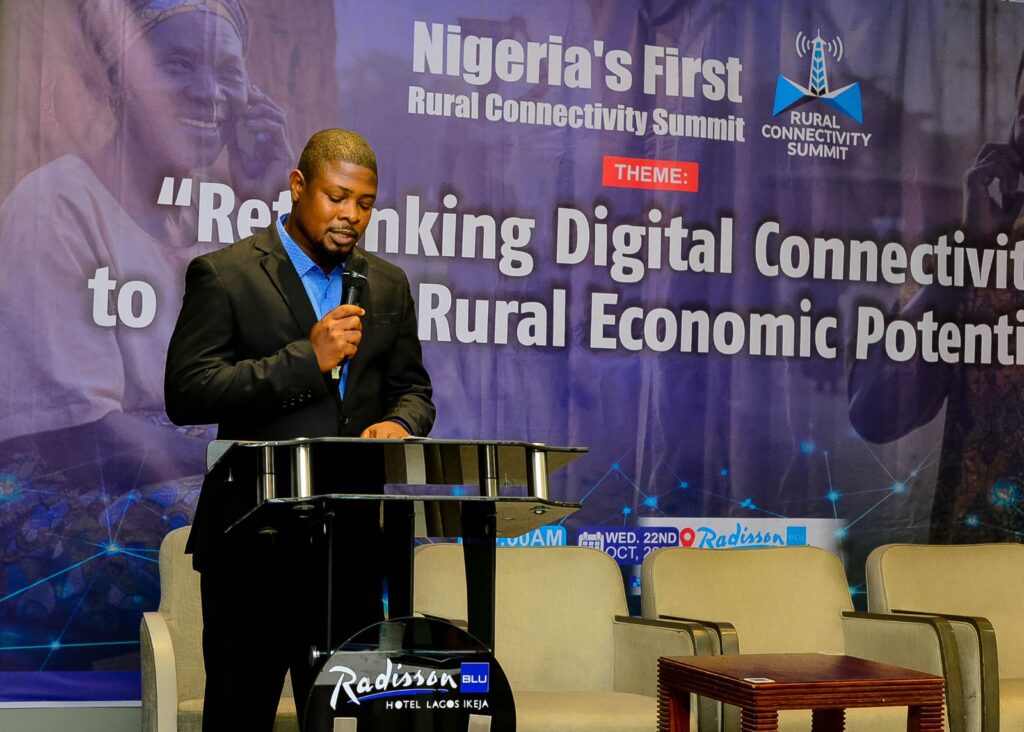
Mr Azeez noted that over 20 million Nigerians still live without any form of digital connectivity. “That figure exceeds the individual populations of some 30 African countries,” he said, stressing that the real challenge is not technological capability but political will and policy consistency.
According to experts, over 80 million Nigerians which represent about 40 per cent of the population, still lack reliable electricity, while nearly 40 million people remain digitally unconnected.
ALSO: At Abuja summit, Elumelu speaks on Africa’s road to sustainable development
The Managing Director/Chief Executive Officer of Rural Electrification Agency (REA), Abba Aliyu, represented by the Executive Director of Technical Services at the agency, Abdullahi Umar, stressed that the lack of power supply is a major obstacle to expanding telecommunications in rural areas.
“Many minigrids struggle with capacity and commercial viability because of the absence of consistent energy demand from anchor loads such as base stations, schools, or agro-processing centres,” he said.
Similarly, the Executive Vice Chairman and Chief Executive Officer of the Nigerian Communications Commission (NCC), Aminu Maida, said the digital divide is slowing national development.
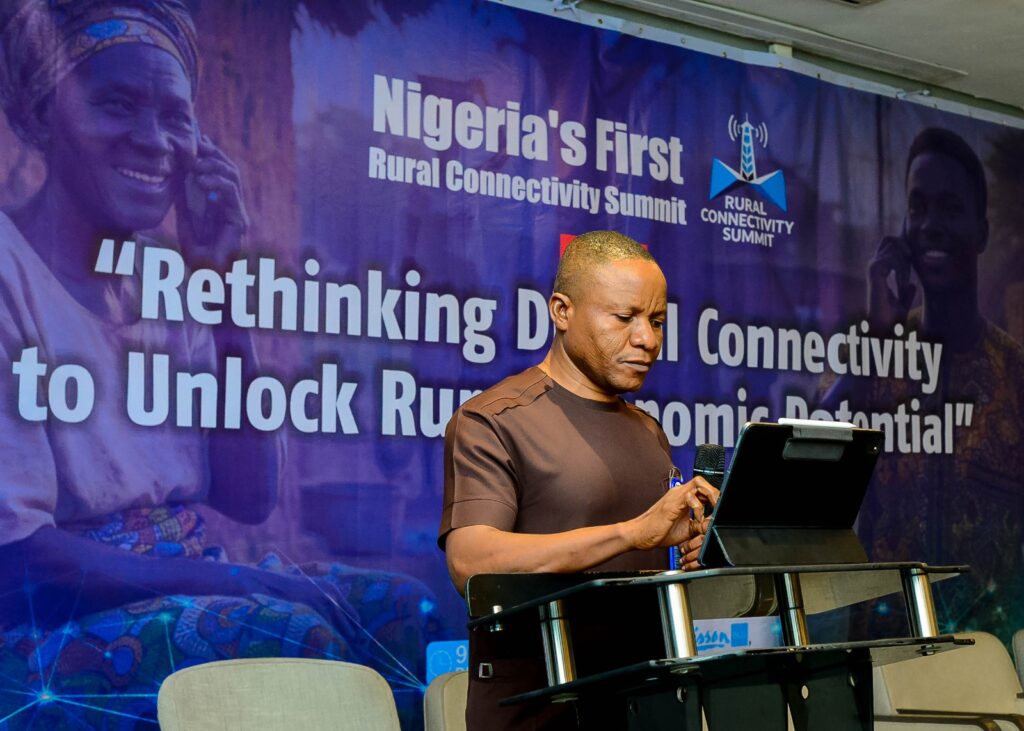
“Nigeria’s ICT Development Index score for 2025 stands at 52.9, ranking 137th out of 164 countries. We must do more to ensure that our rural communities are not left behind,” he said in his keynote address titled ‘Leaving Nobody Behind: Leveraging Regulatory Advantages to Bridge Nigeria’s Digital Divide’.
Mr Maida explained that while cities such as Lagos, Abuja, and Port Harcourt account for about 80 per cent of the country’s total data usage, only 23 per cent of rural dwellers have access to the Internet.
“This divide is more than a technology issue, it affects education, healthcare, agriculture, and job opportunities,” he added.
Linking energy to connectivity
Speaking further, the CEO of REA, Abba Aliyu, highlighted that energy and connectivity must work together for rural development to succeed.
“Telecom base stations in rural areas depend on consistent energy supply, and without that, digital access will remain limited,” he explained.
Mr Aliyu noted that the REA and NCC have begun a joint initiative to integrate renewable energy with telecom infrastructure in remote areas.
He emphasised that the rural energy challenge is also an opportunity to promote innovation and sustainability.
Speaking further in his keynote, Mr Maida reiterated that connectivity should be treated as a national development and security issue, citing research showing that a 10 per cent increase in broadband penetration can drive up to 1.38 per cent GDP growth in developing economies.
Nigeria’s current broadband penetration, according to him, stands at about 48.81 per cent.
To accelerate progress, he said, the NCC has rolled out several initiatives under the Universal Service Provision Fund (USPF), including the Rural Broadband Initiative (RUBI) and the Accelerated Mobile Phone Expansion (AMPE).
These programmes, he noted, have already reached thousands of schools and rural communities. “We must act decisively to ensure our youth are creators, not just consumers, of digital value,” he declared.
ALSO: UNILAG speaks on alleged fee hike
“The digital divide is a barrier to education, healthcare, financial inclusion, and economic empowerment. Bridging this divide is central to achieving inclusive national development, particularly in rural areas, where over 45 per cent of Nigeria’s population lives yet continues to face systemic exclusion from digital opportunities.
“This address outlines the Commission’s deliberate, data-driven blueprint for architecting an inclusive digital future for every Nigerian, drawing on our ongoing initiatives and collaborations.
“Bridging the digital divide is a fundamental economic and national security imperative. Research shows that a 10% increase in broadband penetration can drive approximately 1.38 per cent of GDP growth in developing economies. As of August 2025, Nigeria’s broadband penetration stands at roughly 48.81 per cent.
Stakeholders address rural connectivity barriers
In a panel discussion on infrastructure sharing and collaboration, stakeholders highlighted pricing disagreements and competition among operators as key barriers.
The President of ATCON, Tony Emoekpere, explained that infrastructure owners and operators often fail to reach fair agreements.
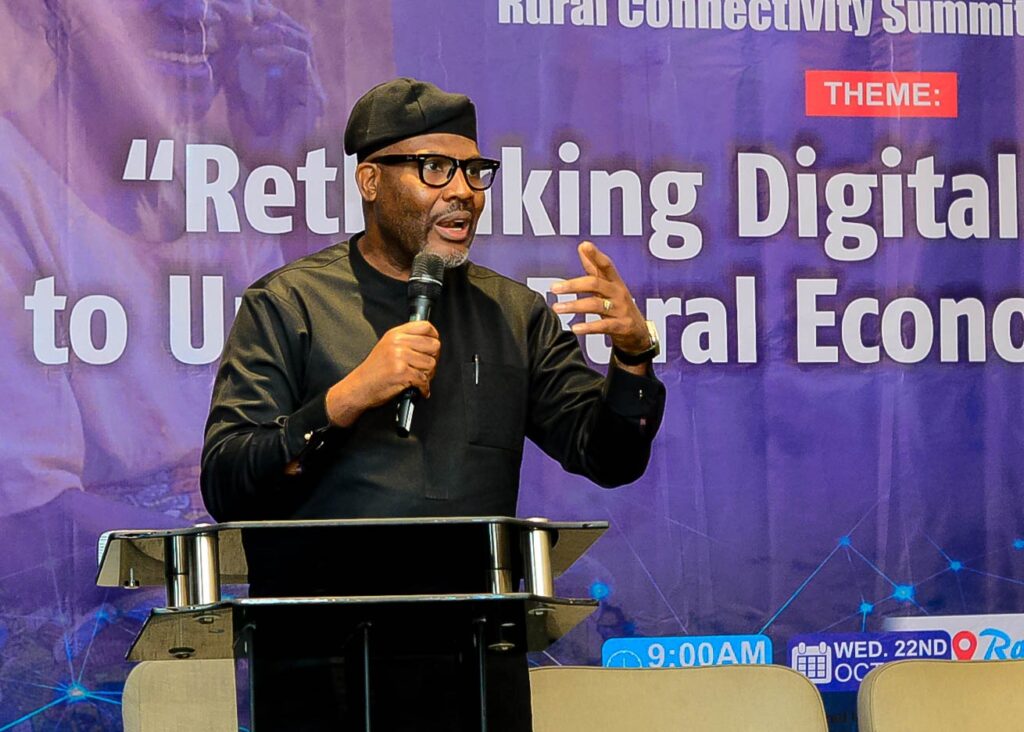
“The question is always what to share, at what price, and to whom,” he said.
Adding his voice, Alphabeta LLC’s Group Chief Technology Officer, Olumide Idowu, said competition often prevents collaboration.
“Despite rivalry, operators like MTN and 9mobile have shared infrastructure successfully. The more we share, the stronger our businesses become,” he said.
The industry leaders and regulators agreed that practical solutions, not policy documents, must drive the next phase of rural connectivity.
The IT experts further called for improved rural security, infrastructure sharing, and fair pricing to attract private investment.
Mr Emoekpere, echoed this concern stating that stakeholders focus on urban models of digital access that do not meet rural needs.
“If we are not identifying the problems rural communities face and designing solutions to solve them, then this summit is just another talk shop,” he said.
He argued that connectivity must be tied to tangible benefits such as access to markets, financial inclusion, and agricultural development.
“The lowest hanging fruit in rural communities is financial inclusion. By expanding POS systems, for example, we can bring millions into the banking space,” he added.
Additionally, the National Chairman, Association of Licensed Telecom Operators of Nigeria (ALTON), Gbenga Adebayo, an engineer, warned that poor state of security in the country, especially in rural areas, discourages investors.
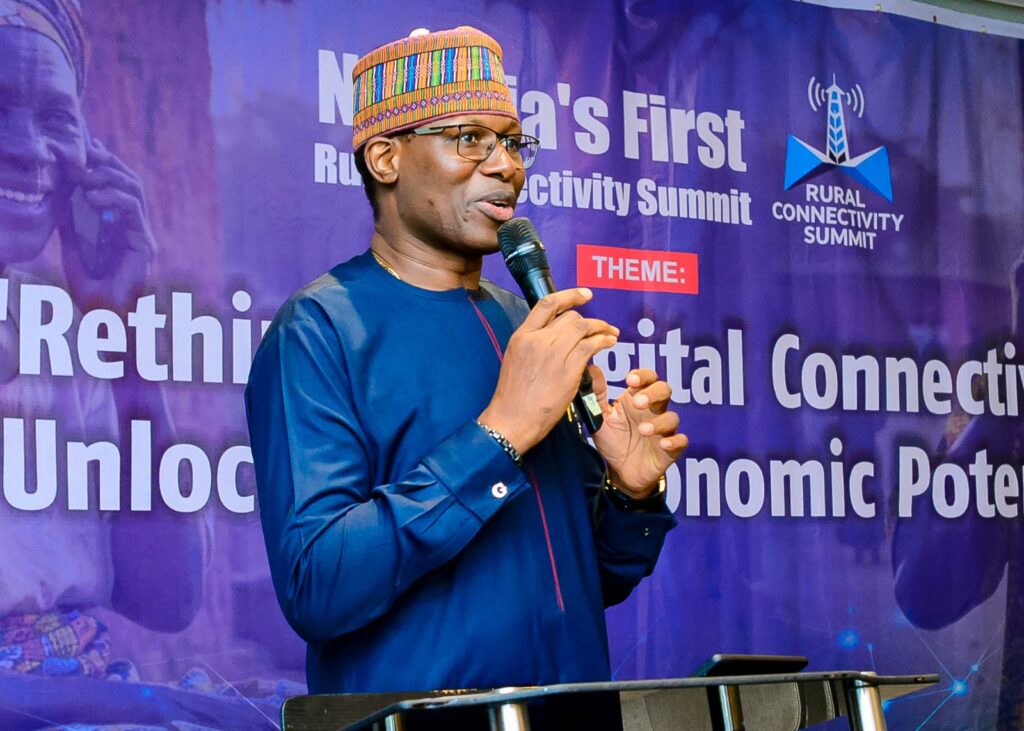
“Investors would rather pay high costs in Lagos than risk building in rural areas,” he said.
Mr Adebayo called on the government to create safer environments for businesses and to promote locally owned networks.
“Our approach to rural penetration must change. Let’s encourage local ownership and design solutions that fit rural realities,” he urged.

